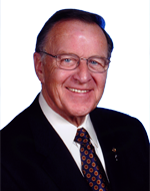McDonough Supports Call for Joint Conference Committee on Civil Confinement
Assemblyman David G. McDonough (R,C,I-Merrick) supports an effort to immediately convene a joint legislative conference committee to negotiate civil confinement legislation.
The Assembly passed civil confinement legislation a week ago, noted McDonough, but unfortunately the bill offered by Assembly Speaker Sheldon Silver and his majority colleagues is not strong enough to provide adequate protection for New Yorkers. Under the majority’s bill, said McDonough, convicted sex offenders currently incarcerated would not be eligible for civil confinement. There are currently more than 5,000 sexual predators in prison. The bill also exempts offenders who receive plea deals and requires a strict standard of five criteria be met before a sexual predator can be considered for confinement. Eligible sex offenders must then meet two separate jury determinations before they could be civilly confined.
Under civil confinement legislation sponsored and supported by McDonough:
- All incarcerated sex offenders would be eligible for civil confinement
- Guilty pleas could continue but offenders admitting their crimes would still be eligible for civil confinement
- More reasonable standards would be established to confine offenders, such as allowing for one determination by a jury prior to civil confinement
- Law enforcement would be authorized to release information on Level 1 and 2 sex offenders
- Information about sex offenders on the Sex Offender Registry would increase.
“The joint conference committee process worked effectively to produce real reforms to Megan’s Law and its Sex Offender Registry, and it should be used to agree on civil confinement legislation,” said McDonough. “The two houses effectively passed separate civil confinement bills last week and it would be a disservice to New Yorkers if we failed to use the joint conference committee to come to a meaningful compromise which would result in the passage of effective civil confinement laws.”
